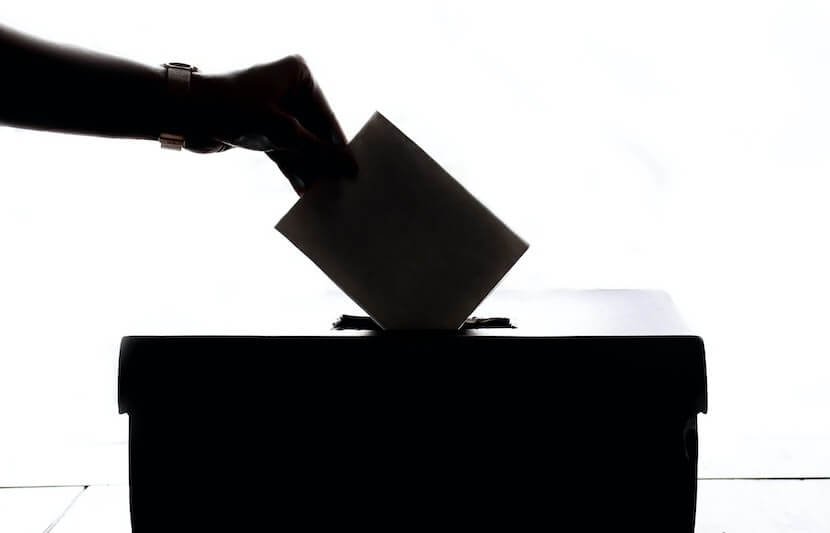When faced with a political ballot, voters have a lot to process. Factors concerning a candidate’s party affiliation, stance on issues and political experience are at the forefront of a voter’s mind on Election day. With so many options, too many details, casting a vote can sometimes feel like a cumbersome process. Deciding who will serve the country best isn’t always easy, and yet, on Election Day, we all make a choice.
But, why? What are the factors that lead us to choose one politician over another? Surely, conscious voters will tell you they vote based on the issues at hand.
A psychologist might say otherwise.
Numerous studies from around the world have shown that, when faced with so many options, our votes can actually be influenced by much more superficial factors. Through a process referred to as heuristics, we tend to simplify our decision-making by evaluating the appearance and personality of politicians. For instance, a politician who appears more physically and emotionally competent is almost a shoe-in over one who doesn’t.
Take the 1960 Kennedy-Nixon debate. The image of a sweaty, unshaven and tired-looking Nixon sitting next to a clean, confident and collected Kennedy changed the outcome of a closely contested election. For the first time in American history, the public image of a politician became an important factor in our voting process.
But how far does that image really get us? Is there a difference between a “good-looking politician” and a “good politician?”
A new study by The University of Kent and the University of Exeter says so. A series of tests comparing the appearance and performance of various UK politicians shows that judging a politician based on image can often lead to choosing the wrong candidate.
In other words, a politician who appears more “competent” or “agreeable” doesn’t necessarily correlate to the more capable politician.
The paper, titled “Do voters get it right? A test of the ascription-actuality trait theory of leadership with political elites,” is published in the journal The Leadership Quarterly.
The study
To test whether or not the appearance of a politician correlates to their capabilities in office, Dr. Madeleine Wyatt from Kent Business School and Professor Jo Silvester from Exeter Business School took a three-pronged approach.
First, they asked 138 local politicians in the UK, called councillors, to rate their own personality.
Then they asked 755 of those politicians’ colleagues, including other councillors and council officers to respond to a 21-item questionnaire and anonymously rate their performance in office.
Examples of questions included: “Is able to balance council, home and other areas of their work life”; “Is comfortable dealing with numbers and financial reports”; and “Is courageous in campaigning on behalf of others.”
Finally, they showed 526 people from around the world photos of each of the 138 politicians and asked them to evaluate their personalities. The participants were not told that the photos were of serving politicians, but were asked to rate the photos based on how competent, intelligent, likeable, trustworthy and attractive they looked.
The researchers believe they were the first to use this method to study the impact of appearance and personality on voting and political performance.
The findings
The researchers took all of the information they gathered — the personality statements made by the politicians themselves, the performance ratings from colleagues, and the personality ratings based on photos alone — and measured them against the politicians’ share of the vote in local authority re-elections and performance in office.
They found that candidates who appeared “competent” from the photo study had more success than others in terms of votes, but were not rated any higher by their colleagues in terms of being effective in office.
In addition, they found that politicians who rated themselves as “agreeable” and who suggested that they were trustworthy and cooperative, also received more votes in the ballot, but were not judged to be very effective by their colleagues.
“The facial appearance of politicians faces rated as looking competent, was associated with vote but not with performance in office, suggesting it is a specious factor when it comes to choosing political leaders,” said Wyatt. “Vote was also associated with high levels of the trait ‘agreeableness,’ which incorporates altruism, trust, frankness of expression and being tender-minded, however, it was in fact low levels of this trait that were associated with better performance in political office.”
What does this say about politics?
The study suggests that while the personalities of politicians are often associated with their performance in office, there appears to be a difference between traits that are desirable during the election process and traits that are necessary to be successful in office.
“We found that voters are not necessarily able to see what politicians are required to do in their day-to-day work and therefore have to rely on characteristics that might seem to matter for leadership, but may not actually be that important,” Wyatt said in a statement.
Because of this disconnect, voters are often misled to think that the candidate who appears more competent or agreeable will be the most effective in office.
“We found voters prefer candidates who are agreeable, but are won over less by people who look warm,” Silverstein said in a statement. “Those ‘agreeable’ politicians were less successful in office, possibly because being a good elected representative requires people to challenge and oppose and win arguments rather than avoid conflict. There is a mismatch between the types of politicians that voters say they want and those who are deemed to perform well once in office.”
Implications
This research highlights the ability of campaigns and PR teams to manipulate elections by influencing the way politicians appear to the public.
“The electorate needs to be wary of placing too much value on the appearance of politicians, but the political system also needs to be made more transparent so voters can clearly see the requirements of political roles,” said Wyatt.



